
Participants
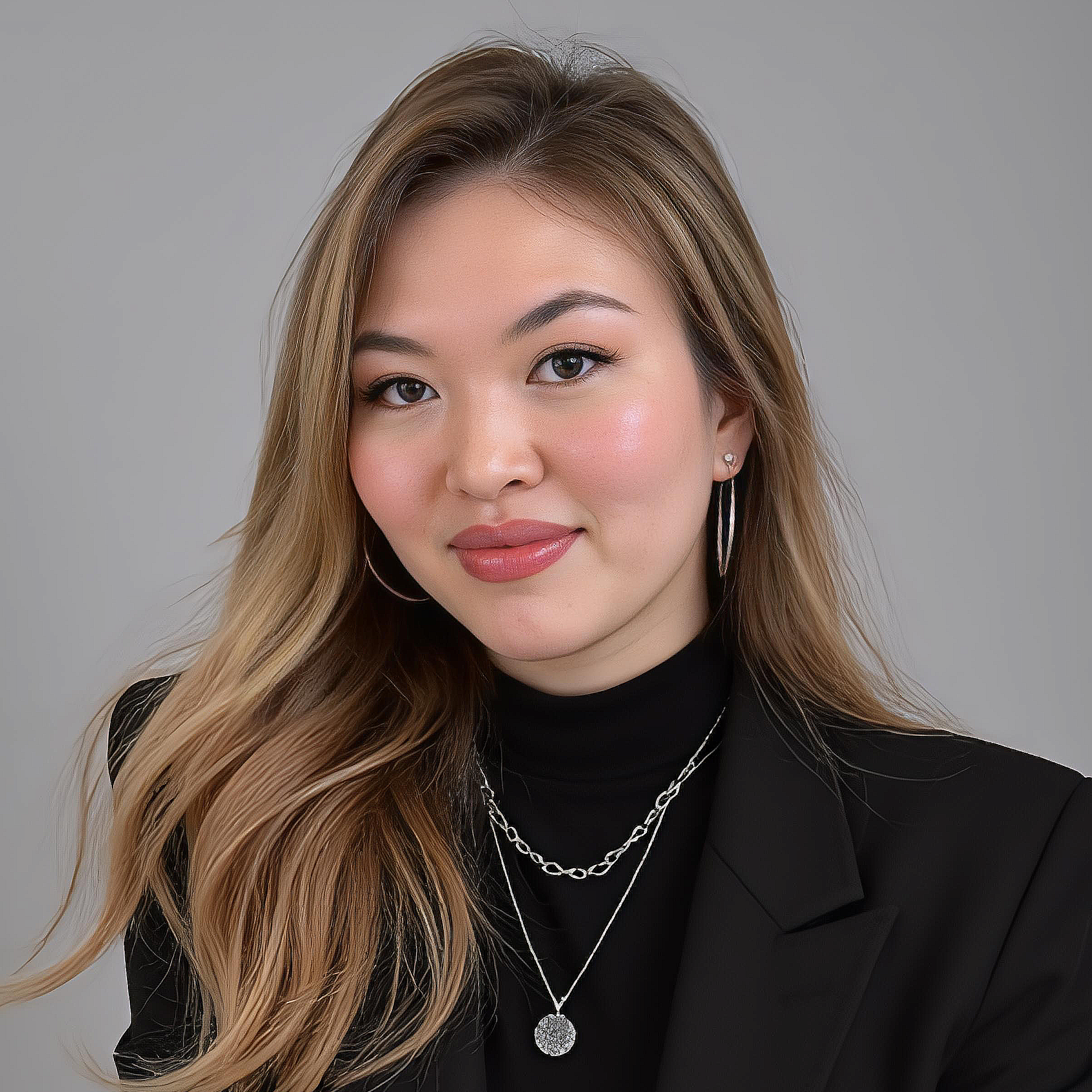
Akbobek Abilkaiyrkyzy
Mohamed Bin Zayed University of Artificial Intelligence (MBZUAI)
Akbobek Abilkaiyrkyzy is a data scientist and AI practitioner specializing in developing sustainable, data-driven solutions to address global challenges in climate resilience, energy, and overall well-being. Her expertise spans predictive analytics, environmental data integration, and applied machine learning – bridging technology and impact at scale. Akbobek holds an MSc in Machine Learning from MBZUAI and a BSc in Automation and Control. She actively contributes to global leadership initiatives as a WiSER Pioneer from Masdar, Global Shaper with the World Economic Forum, Young AI Leaders from AI For Good, and MBZUAI Alumni Board Advisor.
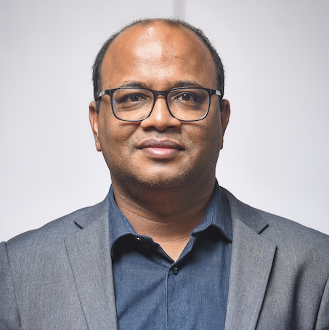
Aniruddha Ghosh
Alliance of Biodiversity International
(CIAT)

Anna Kalu
Federal Ministry of Agriculture and Food Security, Nigeria
Anna Kalu is an environmental professional with over 10 years of experience in greenhouse gas emissions estimation and climate change mitigation in Nigeria’s agriculture sector. She currently serves as Assistant Chief Land Resources Officer at the Federal Ministry of Agriculture and Food Security, where she supports the integration of climate actions into agricultural planning. She is also actively engaged in the implementation of the Agro-Climatic Resilience in Semi-Arid Landscapes (ACReSAL) project, which addresses climate vulnerability in northern Nigeria. With multiple United Nations Framework Convention on Climate Change certifications, Anna contributes to the development of climate-resilient agricultural strategies in line with national adaptation priorities.
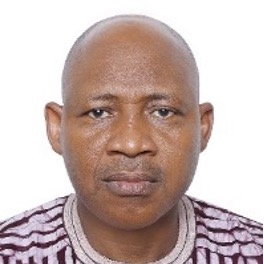
Ayodele Olawumi
Federal Ministry of Agriculture and Food Security, Nigeria
Mr. Ayodele Olajide Olawumi is the Director of Nigeria’s Federal Department of Agricultural Extension Service, Federal Ministry of Agriculture and Food Security. He has over 30 years experience in public policy administration as it relates to sustainable agricultural practices, food and nutrition security, and ecosystem management. He presently leads policy formulation and implementation for national agricultural extension service delivery in Nigeria. His office is responsible for providing leadership, coordination and quality assurance for national agricultural extension service delivery. He holds a bachelor’s degree in agriculture with specialization in soil science and master’s degrees in agricultural economics and environmental policy and management.

Asaminew Teshome
Ethiopian Meteorological Institute
Dr. Asaminew Teshome is a lead researcher and the deputy director general of the Meteorological Forecast and Early Warning Division at the Ethiopian Meteorological Institute. His expertise and research work focuses on weather, climate forecasting, climate change projection, quantifying uncertainties, land atmosphere interactions, Earth system models, remotely sensed observations, and application of emerging sciences like artificial intelligence. He has worked extensively with global and regional climate models. His more recent interests include weather and seasonal climate forecasts, verification, weather and climate modeling using regional climate models, and reanalysis such as single and ensemble models. He is experienced in teaching weather and climate forecast courses for MSc and PhD students, and has authored or co-authored 24 articles. Moreover, Dr. Asaminew Teshome has experience coordinating research and grant projects, and is very active in training the next generation of scientists on the application of emerging sciences. He holds a bachelor’s degree in meteorology science, a master’s degree in climate science, and a doctorate in meteorology science.
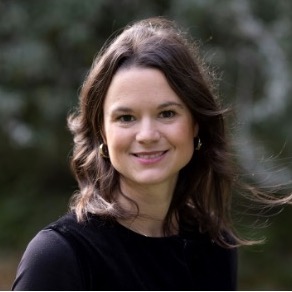
Elinor Kruse
As part of the Google DeepMind Impact Accelerator, Elinor Kruse focuses on external partnerships within weather and sustainability. Her work involves translating Google DeepMind’s research and technologies into applications for positive societal impact, facilitating their adoption, and enabling global access to contribute to positive climate outcomes. Ms. Kruse’s current areas of work include cyclones and extreme weather events, renewable energy forecasting, democratizing access to AI weather models, and agriculture. Before joining Google DeepMind, she was at University College London, where she developed collaborative international research projects in the fields of energy and AI. Prior to that, her career involved working on trade and diplomatic relations across various countries across the globe.

Ghada Elabed
World Bank
Ghada Elabed is a Senior Agriculture Economist at the World Bank. Her work has focused on climate-smart agriculture, food security, agriculture policy, digital agriculture, and the agriculture and energy nexus. Previous to the World Bank Group, Ghada worked as a researcher at Mathematica Policy Research. Ghada earned a Ph.D. in Agricultural and Resource Economics from the University of California, Davis; an MS in Environmental Economics from École Polytechnique, France; and a B.S. in Agronomy from AgrosParisTech, France.

Genevieve Flaspohler
Rhiza Research
Genevieve Flaspohler is the executive director and co-founder of Rhiza Research, a nonprofit developing open technology to close global gaps in climate, energy, and environmental data. She leads the SheerWater Program, a Gates Foundation–funded initiative focused on improving equity in weather intelligence by partnering with national meteorological agencies to deliver actionable forecasts across timescales—from short-term to subseasonal—to smallholder farmers in East Africa. Genevieve holds a PhD in Electrical Engineering and Computer Science from MIT and Woods Hole Oceanographic Institution Joint Program, where she developed scientific machine learning models for weather, climate, and environmental sensing.
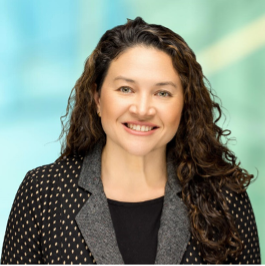
Genevieve Foti
Gates Foundation
Genevieve (Gen) Foti is the deputy director for business development and licensing leading digital and AI partnerships across the Gates Foundation. The Business Development and Licensing team provides transition and negotiating support to program strategy teams to execute priority agreements with select public and private sector partners for access to key assets for charitable purposes. Prior to the Gates Foundation, she was at Google where she was senior strategic partnership development manager. Over the course of her tenure at Google, she was responsible for business development and portfolio management for Google AI, Health, and Devices and Services (Hardware). She led the execution of numerous transactions to enable development and deployment of Google technology. She previously held business development and strategy roles at Included Health (fka Grand Rounds), Kaiser Permanente, and the American Heart Association. She has her Master of Healthcare Administration from the University of Washington, along with a Bachelor of Science in Ecology and Evolution from the University of Santa Barbara.
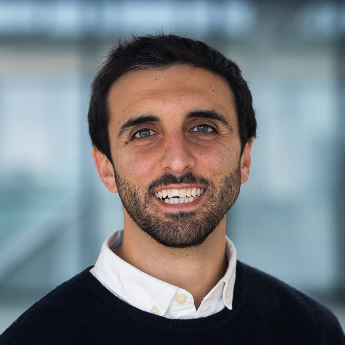
Giulio Schinaia
Development Innovation Lab (DIL)
Giulio Schinaia is a postdoctoral scholar at the University of Chicago’s Development Innovation Lab. Giulio’s research focuses on how digital technologies, social protection interventions, and financial innovations impact households in low-income rural settings. He also studies interventions to enhance state effectiveness. Giulio earned his PhD in Economics from the University of Oxford in 2023 and has previously worked as an economist for Guinea-Bissau’s Ministry of Education and the UK’s Department for Environment, Food, and Rural Affairs. He has also consulted for the World Bank and the Bandim Health Project.
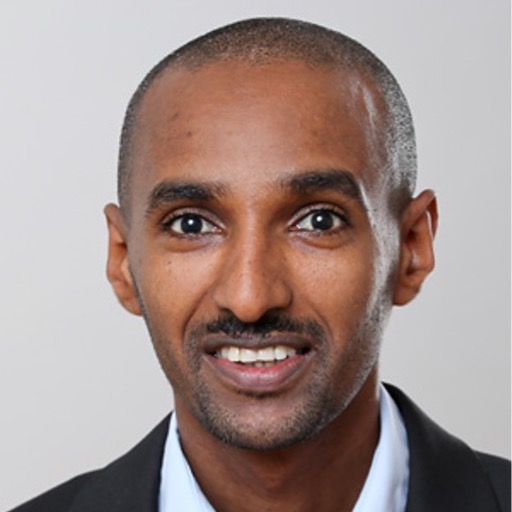
Habtamu Yesigat
Precision Development (PxD)
Habtamu Yesigat Ayenew is an agricultural development economist with extensive research and project coordination experience in Sub-Saharan Africa. Habtamu is currently serving as a project management co-lead for the Digital Agriculture Roadmap (DAR) Ethiopia implementation and as director of programs for precision development. Habtamu holds a PhD from the Technical University Munich (Germany) in production and resource economics.

Hosni Ghedira
Mohamed Bin Zayed University of Artificial Intelligence (MBZUAI)
Dr. Hosni Ghedira is presently a professor of practice at Mohamed Bin Zayed University of Artificial Intelligence (MBZUAI). He earned his MSc of Civil and Environmental Engineering from the University of Sherbrooke in 1997 and his PhD in water sciences from the University of Quebec in 2001. Dr. Ghedira served as director of the Research Centre for Renewable Energy Mapping and Assessment at Masdar Institute (2010-2020). Before relocating to the UAE, he was a faculty member at the City University of New York for six years and founded the Environmental Remote Sensing and Image Processing Laboratory at the NOAA Cooperative Remote Sensing Science & Technology Center in New York. Dr. Ghedira has 25 years of rich and progressively responsible experience in diverse sectors of energy, environment, water, innovation and climate. He is an active member in several regional and international working groups in the field of clean energy, space technologies, water security and environmental monitoring.

Janet Ngesa
Kenya Agricultural and Livestock Research Organization
Janet is an ICT officer at KALRO, leading the Digital Agricultural Content Development, Packaging, and Dissemination Section. She plays a key role in ensuring the effective dissemination of digital climate advisory services (DCAS) and other agricultural advisories to smallholder farmers through digital platforms. Janet has been instrumental in digitizing and contextualizing content to enhance local relevance, accessibility, and adoption. She also spearheads county-level training initiatives to build capacity in the use of KALRO’s digital technologies, fostering grassroots innovation and strengthening the impact of digital agriculture across Kenya.
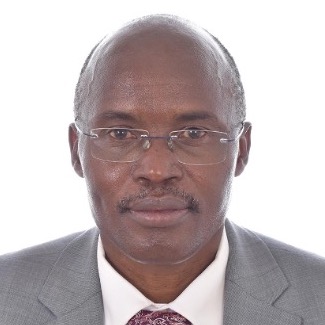
Japeth Migiro
Meteorological Department,
Kenya
Mr. Migiro Japheth Otieno began his career at the Kenya Meteorological Department (KMD) in 1990 as a meteorologist, initially serving as a weather observer. In 2006, he transitioned to the National Meteorological Centre (NMC) where he worked as a weather forecaster.
Between 2009 and 2011, Mr. Otieno was stationed at Jomo Kenyatta International Airport (JKIA) as an aviation forecaster, providing critical weather information for aviation safety and operations. From 2012 to 2015, he served as the County Director of Meteorological Services (CDMS). In this role, his primary responsibility was to establish and strengthen meteorological services at the grassroots level, enhancing community access to localized weather information and early warning systems. Since 2019, Mr. Otieno has been heading the Agro-meteorological Division at KMD in the capacity of assistant director. In this role, he leads efforts to integrate weather and climate information into agricultural planning and decision-making, supporting food security and climate resilience across Kenya.
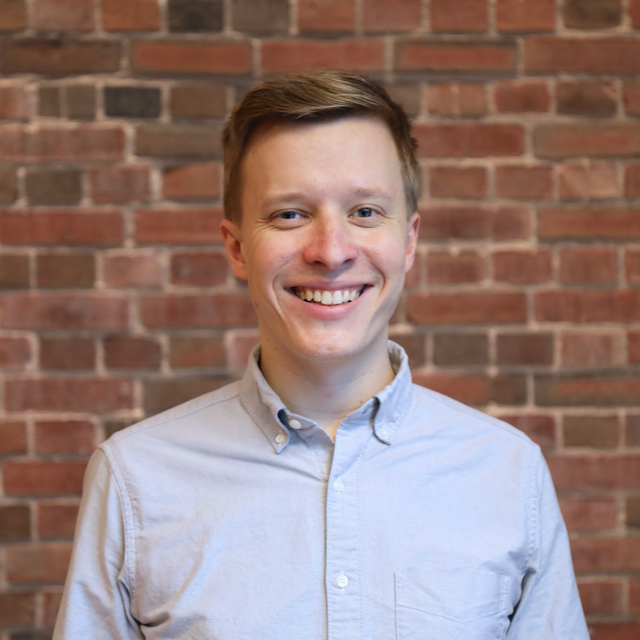
Joshua Deutschmann
Development Innovation Lab
(DIL)
Joshua Deutschmann is an Evidence Synthesis and Research Lead at the Development Innovation Lab (DIL). In this role, he oversees a portfolio of research projects primarily focused in agriculture and finance, as well as supporting the work of the Secretariat of the Innovation Commission for Climate Change, Food Security, and Agriculture. His research spans topics in agriculture, sanitation, energy, and applied econometrics. He was previously a postdoctoral scholar with DIL and holds a PhD in Agricultural and Applied Economics from the University of Wisconsin-Madison.

Khadijat Busola Amolegbe
World Bank
Africa Gender Innovation Lab
Khadijat is an Economist (ETC) with the World Bank’s Africa Gender Innovation Lab (GIL), where she co-leads the Lab’s policy engagement and research uptake efforts aimed at promoting women’s economic empowerment in Nigeria. Her role includes conducting impact evaluations with a focus on agriculture, land, youth employment, and social protection, specifically addressing gender inequalities. Previously, and away on extended leave, Khadijat was a Senior Lecturer at the University of Ilorin in Nigeria. She also served as the Principal Investigator for the Rural Digital Literacy project, funded by USAID under the Feed the Future Market Risk and Resilience Innovation Lab’s Advancing Local Leadership, Innovation, and Networks (ALL-IN) program at the University of California, Davis. Khadijat earned her Ph.D. in Agricultural Economics from the University of Ilorin, Nigeria.

Katie Kowal
Human-Centered Weather Forecasts Initiative of the University of Chicago

María Carolina Vidal
Meteorological Service,
Chile
María Carolina Vidal has been working in agrometeorology at the Chilean Meteorological Service since 2014. She has participated in projects focused on frost, drought, and adaptation to climate change and developed climate services for agricultural users. She has spent the last two years working on the development of a local agro-climate committee that includes farmers, technicians, and public service representatives. This group seeks to understand climate information, identify potential risks for agriculture, and make recommendations on actions that can be taken in response. Ms. Vidal holds a diploma in meteorology from Universidad de Valparaíso and a diploma in operational meteorology and climatology from Escuela Técnica Aeronáutica.
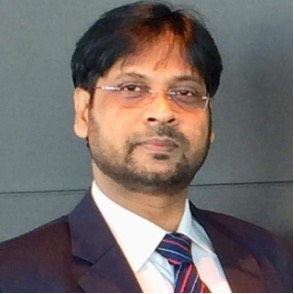
Dr. Md. Moktar Hossain
Ministry of Agriculture, Bangladesh
Dr. Md. Moktar Hossain is a joint secretary to the Government of Bangladesh serving in the Ministry of Agriculture. He graduated from Bangladesh Agricultural University where he completed an MS in Agroforestry and Environment. He also holds an MSc in Energy and Environmental Management and a PhD in Agro-Technology from the United Kingdom. Dr. Hossain has expertise in field-level agricultural environments across different regions in Bangladesh. He has worked on Asian Development Bank and JICA-funded agricultural projects under the Ministry of Agriculture and local government. He has extensive experience as a project director of the Bangladesh Environmental sustainability and Transformation Project, funded by the Word Bank under the Ministry of Environment, Forest, and Climate Change.

Michael Kremer
University of Chicago
Michael Kremer is the chair of the Innovation Commission for Climate Change, Food Security, and Agriculture and a university professor in the Kenneth C. Griffin Department of Economics at the University of Chicago, where he directs the Development Innovation Lab. He was awarded the 2019 Nobel Memorial Prize in Economic Sciences for the experimental approach to alleviating global poverty. His research focuses on innovation, including in education, health, water, finance, and agriculture. He has also worked extensively on how to design institutions to accelerate innovation, including through advance market commitments (AMC) and social innovation funds. Michael actively translates his academic work into real-world programs. He helped to design an AMC for a pneumococcal vaccine. Subsequently, three vaccines have been approved, and rolled out in 60 countries, saving an estimated 700,000 lives. As part of the Accelerating Health Technologies Group, he conducted research and advised governments and international organizations on how to accelerate vaccination against COVID-19. His work on school-based deworming informed India’s national deworming day, which treats over 275 million children each year. His work on safe drinking water led to the Dispensers for Safe Water Program, which reaches 4 million people via the NGO Evidence Action. He is a co-founder of Precision Development, which leverages digital technology to improve productivity and incomes for smallholder farmers in developing countries. Michael received his PhD from Harvard University.

Oliver Kipkogei
IGAD Climate Prediction and Applications Centre
Oliver Kipkogei is a regional agrometeorologist at the IGAD Climate Prediction and Applications Centre (ICPAC) based in Nairobi, Kenya. He received his master’s and bachelor’s degree in meteorology from the University of Nairobi, Kenya. He is currently pursuing a PhD at the same university focusing on climate risk management in agriculture and food security. He has undertaken several professional courses, including Integrated Food Security Phase Classification (IPC) levels 1 and 2, an advanced course in agrometeorology (University of Bologna), a certificate in social protection for smallholder farmers (ILO), among others. Mr. Kipkogei is also one of only several scientists in Africa to have been selected for the One Planet Fellowship, a career development initiative that has built a robust pipeline of highly connected, inter-generational scientists equipped to use a gender lens to help Africa’s smallholder farmers cope with climate variability and change.

Oluwaseun Wilfred Idowu
National Weather Service, Nigeria
Oluwaseun Wilfred Idowu is a seasoned meteorologist with over 20 years of experience in learning, operations, and administration in the field of atmospheric science. His journey began in 1999 when he joined the National Weather Service of Nigeria as a trainee-weather observer before going on to acquire a first degree in meteorology and a second degree in applied meteorology and climate with management from FUTA-Nigeria and UK-Reading, respectively. He has experience in weather observations and forecasting with international exposure, the aviation industry, public weather service, air quality monitoring, MRV of GHGs, numerical weather prediction, and seasonal climate predictions with applications in various socioeconomic sectors. More recently, he has been involved with the administrative side of meteorological operations, assisting the head of meteorological services in coordinating the technical activities of the National Weather Service, including international engagements.

Olivia Graham
Olivia Graham is a product manager at Google, dedicated to leveraging AI for social impact. Her current projects include developing AI for weather forecasting in data-sparse areas and applying computer vision for geospatial understanding. Driven by a passion for addressing critical global challenges, she aspires to turn cutting-edge technology and research into tools that drive meaningful change in people’s lives and the world. Previously, she worked on next-generation accessible experiences. She completed her studies at Harvard, where she studied computer science and mind, brain and behavior. She is Canadian, American, and British and loves to travel to new places, hike, scuba, and watch live theatre!

Peter Odjugo
Nigerian Meteorological Agency
Peter is a leading Nigerian climatologist and expert in climate change, environmental quality, hydro- and agro-meteorology, and tourism. He currently serves as Director of Research and Training at the Nigerian Meteorological Agency (NiMet) and has been an Adjunct Research Professor at the Centre for Population and Environmental Development (CPED) since 2009, leading national and international research projects on climate and environmental issues. He has published over 78 works in books, journals, and monographs and has supervised numerous undergraduate and postgraduate students. Prof. Odjugo is the former President of the Association of Nigerian Geographers (2021–2023), current 1st Vice President of the Nigerian Meteorological Society, and Vice Chair of the Social Service Committee of the International Association of Meteorological Education and Sciences. Internationally, he is Nigeria’s WMO Education and Training Focal Point and serves on several WMO expert teams, including the Executive Council’s Capacity Development Panel. He has represented Nigeria and the global community at numerous conferences, workshops, and technical panels. Prof. Odjugo holds a Ph.D. in Climatology from the University of Ibadan.
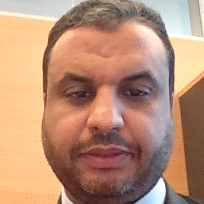
Rabia Merrouchi
World Meteorological Organization
Dr. Rabia Merrouchi is a scientific officer at the World Meteorological Organization (WMO), supporting the Global Integrated Observing System (WIGOS). His work focuses on advancing the implementation of WIGOS at national and regional levels, with an emphasis on integrating observations of Earth systems and essential climate variables—particularly through collaboration with national partner observing networks, including those in the agricultural sector. With over 16 years of active involvement in WMO technical commissions, Dr. Merrouchi has contributed as a member of management groups and expert teams, playing a key role in shaping international observing standards and practices. Since 2007, he has led several WMO-designated regional centers based in Casablanca, including the WMO Regional Instrument Center, the Global Information System Center, and the WIGOS Regional Center, reflecting his long-standing commitment to capacity building and technological advancement across the African continent. Prior to joining the WMO, Dr. Merrouchi spent more than 25 years with the Moroccan national meteorological service, where he held various leadership positions and managed national projects in remote sensing, ocean and surface observations, and data processing systems. Dr. Merrouchi holds an engineering diploma in meteorology from the French National School of Meteorology, a master’s degree in coastal and harbor engineering from the Faculty of Science of Casablanca, and a doctorate from the same institution.

Sebastian Acosta
Agricultural Development Institute, Chile
Sebastián Acosta Villa is the national head of the Productive Development Division at the Agricultural Development Institute (INDAP), Chile’s public agency supporting smallholder agriculture. With over a decade of experience in rural and territorial development, he is responsible for shaping and executing national strategies for rural development and family farming within Chile’s Ministry of Agriculture. INDAP serves over 200,000 smallholder farmers across all regions of the country. Sebastián has led pioneering efforts in impact evaluation, rural advisory systems, and agrobiodiversity conservation. He also serves on the board of Chile’s newly established National Institute for Associativity and Cooperatives (INAC), and as Chile’s national coordinator for the Specialized Meeting on Family Farming of the expanded MERCOSUR (REAF). He holds a degree in Agricultural Economics and is pursuing an MPP. He brings a deep understanding of Latin American rural contexts and public-private partnerships.

Sebastian Grey
World Meteorological Organization
Sebastian Grey is a Scientific Officer for Agrometeorology in the Applied Climate Services Section (ACS) of the World Meteorological Organization (WMO). His work focuses on enhancing the application of climate services in the agriculture sector, ensuring that climate services are tailored to and meet the needs of the different users in the sector. Over the course of his career, Sebastian has worked in various international organizations supporting climate resilience in the agriculture sector, including the International Centre for Tropical Agriculture (CIAT), where he coordinated agricultural climate risk profiling activities; the Food and Agriculture Organization of the United Nations (FAO), where he provided technical support on the implementation of climate-smart agriculture programmes and projects in Eastern Africa; and Oxfam GB in Zimbabwe, where he supported the design, monitoring, and implementation of agricultural adaptation projects. He holds a Master of Science in Agricultural Meteorology and a bachelor’s degree in Geography.
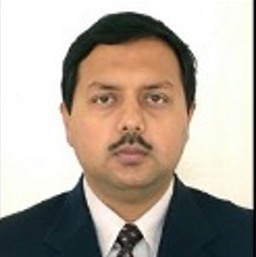
Shameem Hassan Bhuiyan
Meteorological Department, Bangladesh
Dr. Md. Shameem Hassan Bhuiyan is Deputy Director, Head, Agrometeorology Division and International Meteorology Division, of the Bangladesh Meteorological Department. Mr. Bhuiyan has extensive research experience and has worked across a variety of meteorology and hydrology fields, including cyclone forecasting, storm surge, monsoon systems, seasonal forecasting, long-range and medium-range forecasting, agro-meteorological forecasting, and advisory services, among others. Mr. Bhuiyan was also a senior consultant at the Asian Development Bank and the World Bank from 2017 to 2021 on secondment from the government. He has extensive experience as a project director overseeing the implementation of government- and donor-funded development projects in Bangladesh. Mr. Bhuiyan completed his post-graduate degree in satellite communication at the Indian Space Research Institute. He also holds a PhD degree in hydrometeorology.

Simon Mulwa
Kenya Agricultural and Livestock Research Organization
Simon Mulwa is a pioneering figure in digital transformation, possessing over 16 years of extensive experience in the implementation of ICT systems and digital innovation. He offers a compelling combination of technical expertise, strategic vision, and leadership within the agricultural technology domain. His qualifications include multiple certifications along with a Master of Science in Information Technology Management (ITM). He is also currently pursuing a PhD in Information Systems. In his role as the assistant director of ICT and co-lead for agricultural data and digitization at the Kenya Agricultural and Livestock Research Organization (KALRO), Simon is instrumental in advancing Kenya’s agricultural transformation through the national Big Data platform. He has co-led and executed transformative digital initiatives that have made a direct impact on millions of farmers, inclusive of the development of over 30 farmer-oriented mobile applications and the deployment of the Agriprenuer model, significantly improving service delivery, data accessibility, and productivity across the sector. Moreover, Simon’s influence transcends the borders of Kenya. He is a member of the Agricultural Data Task Group (ATG) under the auspices of the International Council for Science’s Committee on Data (CODATA), where he contributes to the establishment of global agricultural data frameworks and open science standards.

Stanley Best
Agricultural Research Institute, Chile
Stanley Best is a researcher at INIA, Chile’s Digital Agriculture Program, and national coordinator for the PROCISUR-MERCOSUR Digital Agriculture Platforms. He currently chairs the Ibero-American Network for Digital Agriculture (RIDAG.net) and is a member of CIGR (Equipment Engineering for Plants), the Club of Bologna, and the editorial boards of JITAg. He is also as a reviewer of other national and international scientific journals. Additionally, Mr. Best served as a two-time judge of the Gerdau Awards (Agrishow, Brazil) and a member on the scientific committees of over 20 international conferences, including FRUTIC, CIGR World Congress (Japan), and others. He has delivered keynote speeches in the Americas, Asia, and Europe, published over 70 scientific and outreach papers, and led more than 30 national and international research projects.
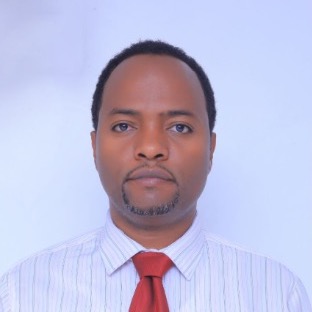
Temesgen Gebeyehu
Agricultural Transformation Institute, Ethiopia
Temesgen Gebeyehu is the program lead for Digital Agriculture Services at the Ethiopian Agricultural Transformation Institute (ATI). He oversees key digital initiatives such as the 8028 Farmers’ Hotline (approximately 7 million users), the National Market Information System (nmis.et), and the Digital Market Linkage Platform. With over 17 years of experience in digital agriculture, ICT, and project management, he leads a national team across federal and regional levels and manages an annual budget of about 70 million ETB. Temesgen holds a B.Sc. in Information Systems, an M.Sc. in Information Science, and multiple professional certifications in ICT, digitalization, and project management.

Tomoko Harigaya
Precision Development (PxD)
Tomoko Harigaya is the chief economist and director of research at Precision Development. She has over 15 years of experience in designing and evaluating agricultural and financial services for low-income households, working in collaboration with governments and cross-sector partners. Previously, she served as the Philippines country director at Innovations for Poverty Action, where she oversaw numerous impact evaluations and developed research partnerships. Tomoko currently serves on the advisory group for the Climate Resilience Global Research & Innovation Priority at the Airbel Impact Lab, part of the International Rescue Committee.
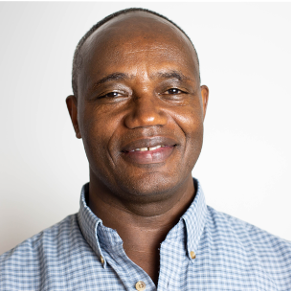
Tufa Dinku
International Research Institute for Climate and Society (IRI) of Columbia University
Dr. Tufa Dinku is a senior research scientist at the International Research Institute for Climate and Society (IRI) of Columbia University. He has over three decades of experience in research and applications around meteorology, early warning systems, and climate information services — including 12 years as an operational meteorologist in Ethiopia and 20 years as a climate scientist at IRI. His research has focused mainly on developing and evaluating methods and tools that use remote sensing and reanalysis products to overcome the challenges of inadequate climate datasets, particularly in Africa. Beyond research, Dr. Dinku has also been contributing to the use of climate science for society through the development and implementation of the transformative ENACTS (Enhancing National Climate Services) approach. The ENACTS approach, which has been implemented in over 20 developing countries, is a multi-faceted initiative designed to bring climate knowledge into national decision-making through improved spatially and temporally continuous climate data that goes back over 40 years, co-generated climate information products that are made available through web portals (maprooms), and developing capacity of users to understand and use climate information products in different applications. ENACTS is now recognized globally as an innovative approach that has started to transform climate services in many developing countries. Dr. Dinku has been collaborating with National Meteorological Services, experts at governmental and non-governmental organizations in Africa on several projects aimed at advancing the generation, dissemination, and use of climate information for decision-making in agriculture, food security, health, and disaster risk management.
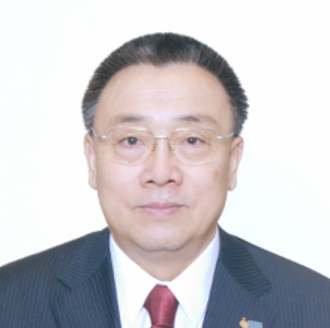
Wenjian Zhang
National Center of Meteorology, United Arab Emirates
Dr. Wenjian Zhang currently serves as the international affairs advisor to the President of the World Meteorological Organization (WMO), Dr Abudulla Al Mandous. He has also taken on the roles of assistant secretary general (2016 – 2023) and director of the Observing and Information System Department (2008-2016) at WMO. Prior to this, he was the deputy administrator of the China Meteorological Administration from 2006-2008. Dr. ZHANG has rich experience of international meteorological cooperation. His major duties, as assistant secretary general of WMO included supervision and management of the Departments of Infrastructure, Member Service, and Development, as well as budget and financial matters. His 16-year tenure at WMO has rewarded him with exceptional strategic vision, outstanding leadership skills, rich management experience, and a great sense of dedication to serving WMO members. He has provided extraordinary support and contributions to the elaboration and implementation of WMO development strategies, especially in promoting a unified WMO data policy and data exchange; enhancing integrated surface and space-based Earth system observation; unifying meteorological observation standards; improving meteorological forecasting technology; and promoting meteorological service tools and capacity building for members. He is a PhD holder and research fellow.
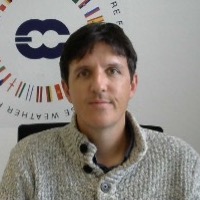
William Becker
European Centre for Medium-Range Weather Forecasts
William Becker is a training specialist in machine learning at the European Centre for Medium-Range Weather Forecasts (ECMWF) in Bonn, Germany. He holds a PhD in mechanical engineering and has previously worked as a multidisciplinary data scientist and researcher for the European Commission, UN agencies, and other international organisations, with a focus on applying data science to policy. He has worked across various fields, from weather and climate to innovation and migration, and his professional interests include uncertainty analysis, machine learning, and scientific communication and training.

William Boos
University of California, Berkeley
William Boos is an associate professor at the University of California, Berkeley in the Department of Earth and Planetary Science, where he specializes in atmospheric dynamics. Much of his work focuses on monsoons, which are continental-scale atmospheric circulations that deliver water to billions of people in Earth’s tropics, as well as extreme weather phenomena such as heat waves, intense precipitation, and severe storms. He is also a Faculty Scientist at the Lawrence Berkeley National Laboratory. Before moving to Berkeley, he was faculty at Yale and a postdoctoral fellow at Harvard. He received his PhD from MIT and undergraduate degrees from the State University of New York at Binghamton.
AIM for Scale Weather Technical Panel
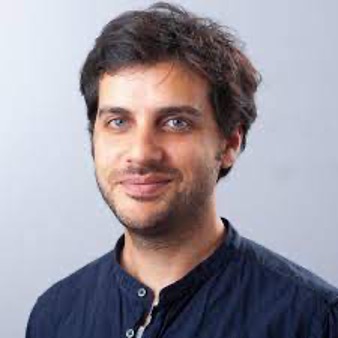
Amir Jina
University of Chicago
Amir Jina is the chair of AIM for Scale’s Weather Package Technical Panel. He is an Assistant Professor at Harris School of Public Policy at the University of Chicago and a Senior Fellow at the Energy Policy Institute of Chicago (EPIC). His research in environmental and development economics explores the influence of the environment on societal development. He combines economic analysis with methods from climate science and remote sensing to understand the impacts of climate change in both developed and developing nations. Amir’s work has involved fieldwork on climate change adaptation with communities in India, Bangladesh, Kenya, and Uganda. Prior to joining the University of Chicago, he was a visiting scholar at the University of California at Berkeley, contributing to the Risky Business initiative’s economic analysis. He is a founding member of the Climate Impact Lab and was a Postdoctoral Scholar in the University of Chicago’s Economics Department. He holds a PhD in Sustainable Development and an MA in Climate and Society from Columbia University, BAs in Mathematics and Theoretical Physics from Trinity College, Dublin, and has experience working with the Red Cross/Red Crescent in South Asia.

Erin Coughlan de Perez
Tufts University
Erin Coughlan de Perez is the CBF Professor at Friedman School of Nutrition at Tufts University. She directs the Center for Climate and Health glObal Research on Disasters (CORD), global consortium on climate, health, and anticipatory action. Erin’s research bridges the gap between climate science, policy, and practice, focusing on the ability to anticipate and manage disasters, including droughts, floods, and heatwaves, before they occur. She researches adoption and effectiveness of adaptation measures in the face of climate change. Previously Erin was at the Red Cross/Red Crescent Climate Centre, where she established a global climate science team and pioneered Forecast-based Financing pilots. She maintains a senior advisor role there, ensuring strong ties to global humanitarian efforts. Erin is also a lead author for the IPCC 6th Assessment Report, for the chapter: Decision-Making Options for Managing Risk. Additionally, she serves as an academic editor for the journal PLOS Climate and serves on the Council of the American Meteorological Society. She holds a PhD from Vrije Universiteit Amsterdam and a MA from Columbia University.
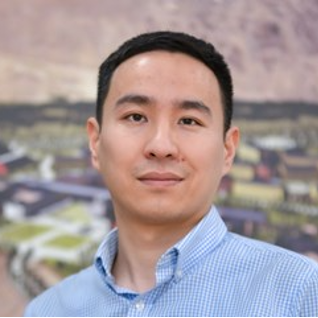
Erkin Isaev
World Meteorological Organization
Dr. Erkin Isaev is a project officer at the World Meteorological Organization (WMO). With over 11 years of experience in both national and international roles, he has held various positions, including hydrometeorologist, chief specialist in agrometeorology, and head of the Modeling Department at the Agency for Hydrometeorology of Kyrgyzstan. He has also worked as a consultant in numerical weather prediction, climate modeling, drought and flood modeling for the World Bank Group, the UN Food and Agriculture Organization, and the UN Economic and Social Commission for Asia and the Pacific. He has developed applied, interdisciplinary solutions in disaster risk management, integrated water management, extreme weather and climate impact-based forecasting, and the application of AI/ML in early warning and anticipatory actions within the agriculture sector. Erkin holds a PhD in agrometeorology, meteorology, and climatology, as well as a bachelor’s degree in hydrometeorological modeling.

Monica Petri
Asian Development Bank
Monica Petri is the senior natural resources and agricultural specialist at the Asian Development Bank (ADB). She has over 25 years of experience, mostly at the Food and Agriculture Organization of the United Nations, as well as the UN Development Programme, International Fund for Agricultural Development, and CGIAR. She is an expert on land management and rehabilitation and climate change adaptation at the territorial level. Monica has vast experience in soil, crop, and climate modeling, and has led project portfolios. Her work experience spans Latin and Central America, Africa, and Asia. She has significant experience in digital agriculture, especially in digital public infrastructures. She recently joined ADB’s Manila headquarter office to expand digital agriculture business opportunities in Asia and the Pacific. In such capacity, Dr. Petri is responsible for the Agri Stack development in India and the partnership with the University of Chicago on climate services for farmers and other innovations. She holds a PhD in Environmental Agriculture from Scuola Superiore Sant’Anna.
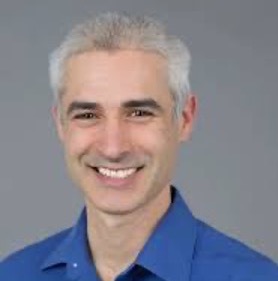
Neil Hausmann
Gates Foundation
Neil Hausmann serves as principal officer, predictive analytics in the Agricultural Development portfolio at the Gates Foundation. In this capacity, he directs targeted investments toward research teams focused on developing and deploying interventions that enhance the agricultural income and nutritional status of smallholder farmers. Prior to joining the Gates Foundation, Neil spent 15 years at Pioneer Hi-Bred and Corteva Agriscience, where he gained extensive experience in breeding, digital agriculture, field phenotyping, and modeling. This background provides him with a deep understanding of the challenges and opportunities in agricultural development. Niel holds a PhD from the University of California, Berkeley.
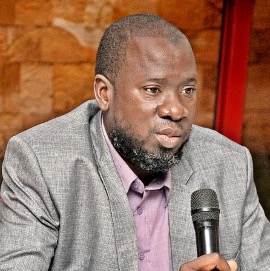
Ousmane Ndiaye
African Center of Meteorological Application for Development (ACMAD)
Ousmane Ndiaye is the acting director general of the African Center of Meteorological Application for Development (ACMAD). He previously led the Senegalese Meteorological Service at the Agency of Civil Aviation and Meteorology (ANACIM). He is interested in climate prediction and its application in a broad sense: user engagement and ownership, tailoring climate information, private partnership, communication. Ousmane has significant experience working with partners (NGOs, researchers, extension services, end-users) on how to deliver climate information services from end to end. He is a contributing author of the 6th IPCC Report (Working Group I) and a board member of the Global Heat Health Information Network (GHHIN). Ousmane holds a PhD from Columbia University in New York.
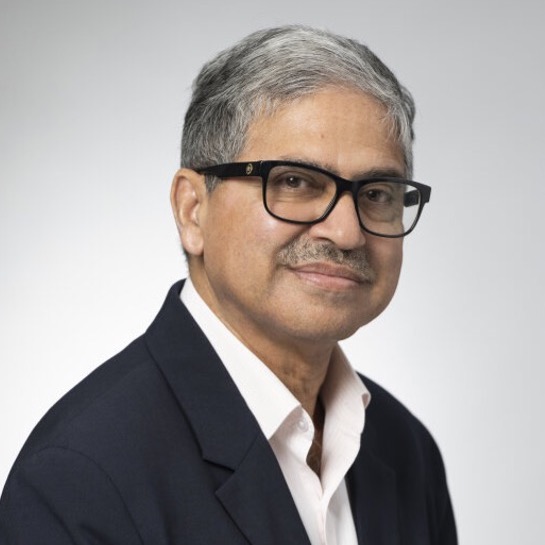
Parmesh Shah
World Bank
Parmesh Shah is the Global Lead for Data, Digital Agriculture, and Innovation at the Agriculture and Food Global Practice of the World Bank. He currently provides leadership and supports the development of global knowledge and learning in these areas to offer solutions to clients and other development partners. His current areas of interest are making markets and public services work for the poor, social entrepreneurship, digital and data-based innovations in agriculture and rural development, climate smart agriculture, agriculture- and technology-enabled start-ups, venture and patient capital for innovation, promotion of on-farm, off-farm and digital jobs, and public-private and people partnerships for rural poverty reduction. He is currently managing a global program on scaling up data-driven digital agriculture involving data platforms and establishing ecosystems for innovation, entrepreneurship, and incubation across 38 countries in all regions across the world. He holds a DPhil in Development Studies from the Institute of Development Studies at the University of Sussex, an MBA from the Indian Institute of Management, Ahmedabad, and a B Tech degree in Agricultural Engineering from Pant Nagar in India
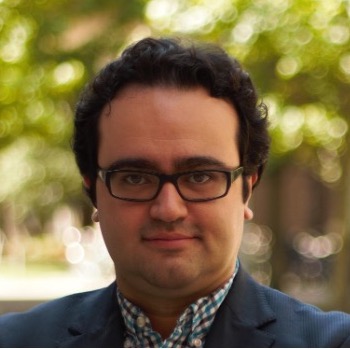
Pedram Hassanzadeh
University of Chicago
Pedram Hassanzadeh is a tenured Associate Professor at the Department of Geophysical Sciences, the Committee on Computational and Applied Mathematics, and the Data Science Institute, at the University of Chicago. His research focuses on integrating theory, simulations, observations, and machine learning techniques to understand the dynamics and variability of extreme weather events across time scales, from days to decades. He leads the Climate Extremes Theory and Data (CeTD) group and the AI for Climate (AICE) Initiative, which is dedicated to accelerating climate research through interdisciplinary AI applications. He is the co-director of the University of Chicago’s Human-Centered Weather Forecasting Initiative. Prior to joining the University of Chicago, Pedram was a tenured Associate Professor at Rice University and a Ziff Environmental Fellow at Harvard University. His work has been recognized with a NSF CAREER Award and an Office of Naval Research Young Investigator Award, highlighting his contributions to advancing climate science through computational methods. He received his PhD in geophysical turbulence and MA in applied mathematics from UC Berkeley.
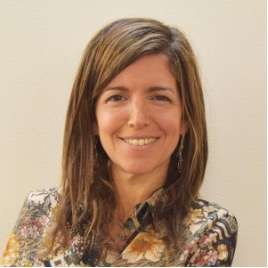
Romina Ordonez
Inter-American Development Bank
Romina Ordonez is a Senior Specialist in Rural Development at the Inter-American Development Bank (IDB) based in Chile, where she leads the development and implementation of agriculture and rural development projects in Chile and other countries in Latin America. Her expertise spans the design, supervision, and evaluation of development projects, with a focus on sustainable rural development. Previously, Romina worked as an economist at IDB Invest, concentrating on the agribusiness and tourism sectors. Her work included measuring the development impact of private sector operations, designing and implementing advisory services and impact evaluations. She holds a PhD in agricultural economics, a master’s in public policy, a bachelor’s degree in economics, and a technical degree in journalism.
AIM for Scale Secretariat

Adrienne Uselman
Communications Manager
Adrienne Uselman serves as the Communication Manager of the AIM for Scale Secretariat. Previously, she oversaw communications for DevTech Systems, Inc., a federal contractor for USAID and the U.S. State Department in the economic growth and data analytics spaces. She has worked at the World Food Programme, both at headquarters in Rome and across Bangladesh. Prior to her career in international development, Adrienne was a marketing professional in the music industry. She holds a Master of Science in Sociology from the University of Edinburgh and a Bachelor of Commerce in marketing from McGill University.

Imara Salas
Director - AIM for Scale Secretariat
Imara Salas is an Associate Director at the Development Innovation Lab at the University of Chicago, where she manages the secretariat for the Innovation Commission for Climate Change, Food Security, and Agriculture. She leads partnerships mobilizing over $1 billion for evidence-based innovations in agriculture, climate resilience, and innovation. Previously, she worked with the World Bank, the Inter-American Development Bank, Harvard University, and Chile’s Center for Public Policy, contributing to agricultural and digital transformation projects. Imara holds a Master of Public Policy (MPP) from Harvard University and a Bachelor of Science in Foreign Service in Economics from Georgetown University.

Mohammaed Farrae
Scientific Director
Mohammad Farrae is a food systems specialist with expertise in sustainable development, climate-smart agriculture, and global food systems initiatives. Most recently, he served as Senior Specialist for Food Systems Partnerships at COP28, where he advanced global commitments to climate-smart agriculture and supported the implementation of key initiatives. Previously, Mohammad consulted for FAO and the University of Notre Dame on rural transformation, and contributed to development projects in Pakistan, including U.S. Embassy and Gates Foundation-supported programs. He holds a Master of Global Affairs in Sustainable Development from the University of Notre Dame and a Bachelor’s in Mechanical Engineering.

Tobias Baedeker
Program Director
Tobias Baedeker is an agriculture development economist specializing in innovative solutions for climate resilience and food systems transformation. Over 14 years at the World Bank, he led teams designing and implementing operations across 20+ countries in Africa, Latin America, MENA, and South Asia, driving over $1.5 billion in investments for food security, emission reductions, and value chain integration. Tobias has co-authored articles in Nature Climate Change and Nature Food and published various technical reports. Previously, he worked as Project Coordinator for Innovations for Poverty Action (IPA) and Young Leader for Sustainability at GIZ. He holds a Master of Public Administration (MPA) from the London School of Economics (LSE) and a Bachelor of Arts in Economic Sciences from the University of St. Gallen.
